‘You could be forced to give birth in a cellar’: Inside a maternity clinic in war-torn Ukraine
Photographer Marko Djurica gives us a glimpse into the anxiety and incredible efforts shown at the last maternity clinic in Ukraine-controlled Donbas region as war closes in

Your support helps us to tell the story
From reproductive rights to climate change to Big Tech, The Independent is on the ground when the story is developing. Whether it's investigating the financials of Elon Musk's pro-Trump PAC or producing our latest documentary, 'The A Word', which shines a light on the American women fighting for reproductive rights, we know how important it is to parse out the facts from the messaging.
At such a critical moment in US history, we need reporters on the ground. Your donation allows us to keep sending journalists to speak to both sides of the story.
The Independent is trusted by Americans across the entire political spectrum. And unlike many other quality news outlets, we choose not to lock Americans out of our reporting and analysis with paywalls. We believe quality journalism should be available to everyone, paid for by those who can afford it.
Your support makes all the difference.In the last specialist maternity ward still under Ukrainian control in the eastern Donbas region, the windows are packed with sandbags.
Rooms used for births at the perinatal centre in the city of Pokrovsk follow the two-wall rule, which says the safest parts of a building are separated from the outside by at least two walls.
“Sometimes we’ve had to deliver babies during shelling,” said Dr Ivan Tsyganok, head of the centre. “Labour is a process that cannot be stopped.”
The centre, roughly 25 miles from the front line, gives a glimpse of the suffering the war is inflicting on pregnant women – their anxiety over where they can give birth, fears of whether the hospital will come under attack, and what doctors have observed to be an increased rate of early labour.
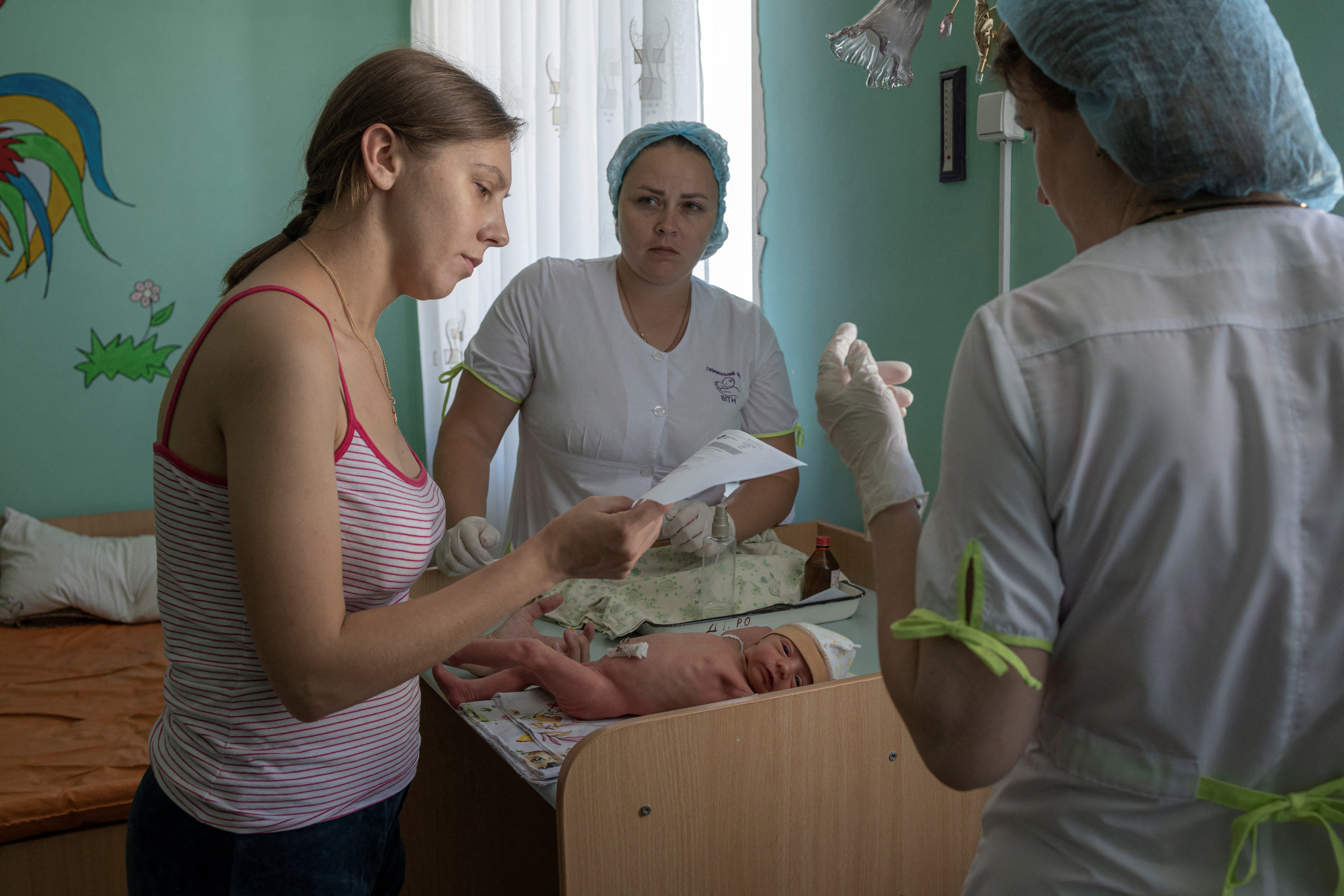
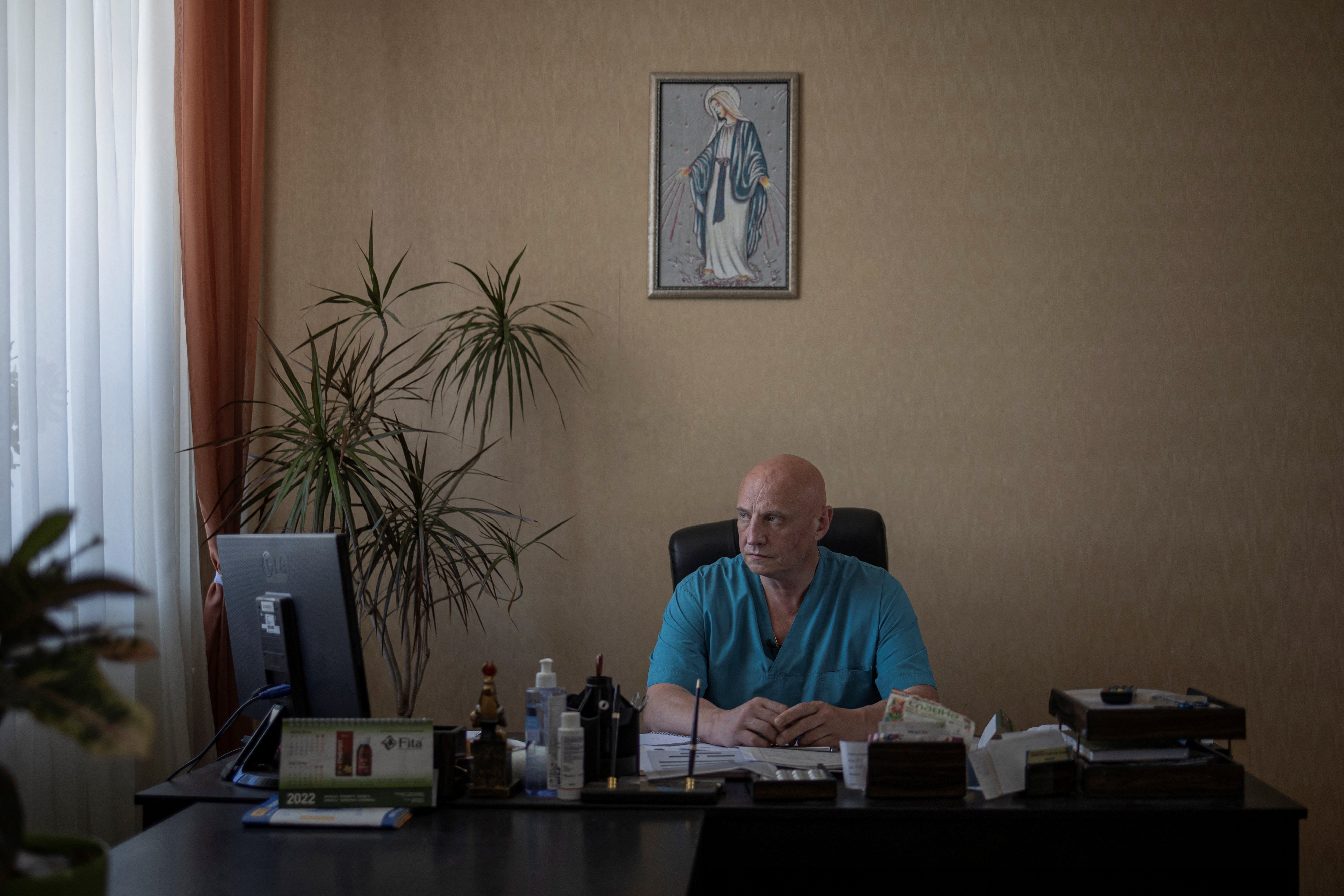
Tsyganok fears the stress of living under Russian attack has led to a spike in premature births, a fear borne out in initial data from the centre, shared with Reuters, and observed elsewhere in conflict zones.
Russia denies targeting civilians but many Ukrainian cities, towns and villages have been left in ruins as Europe’s biggest conflict since the Second World War grinds towards the five-month mark.
Katya Buravtsova’s second child, Illiusha, was among those born early, delivered at only 28 weeks. He would have had “zero chance” at survival if not for the centre, Tsyganok said.
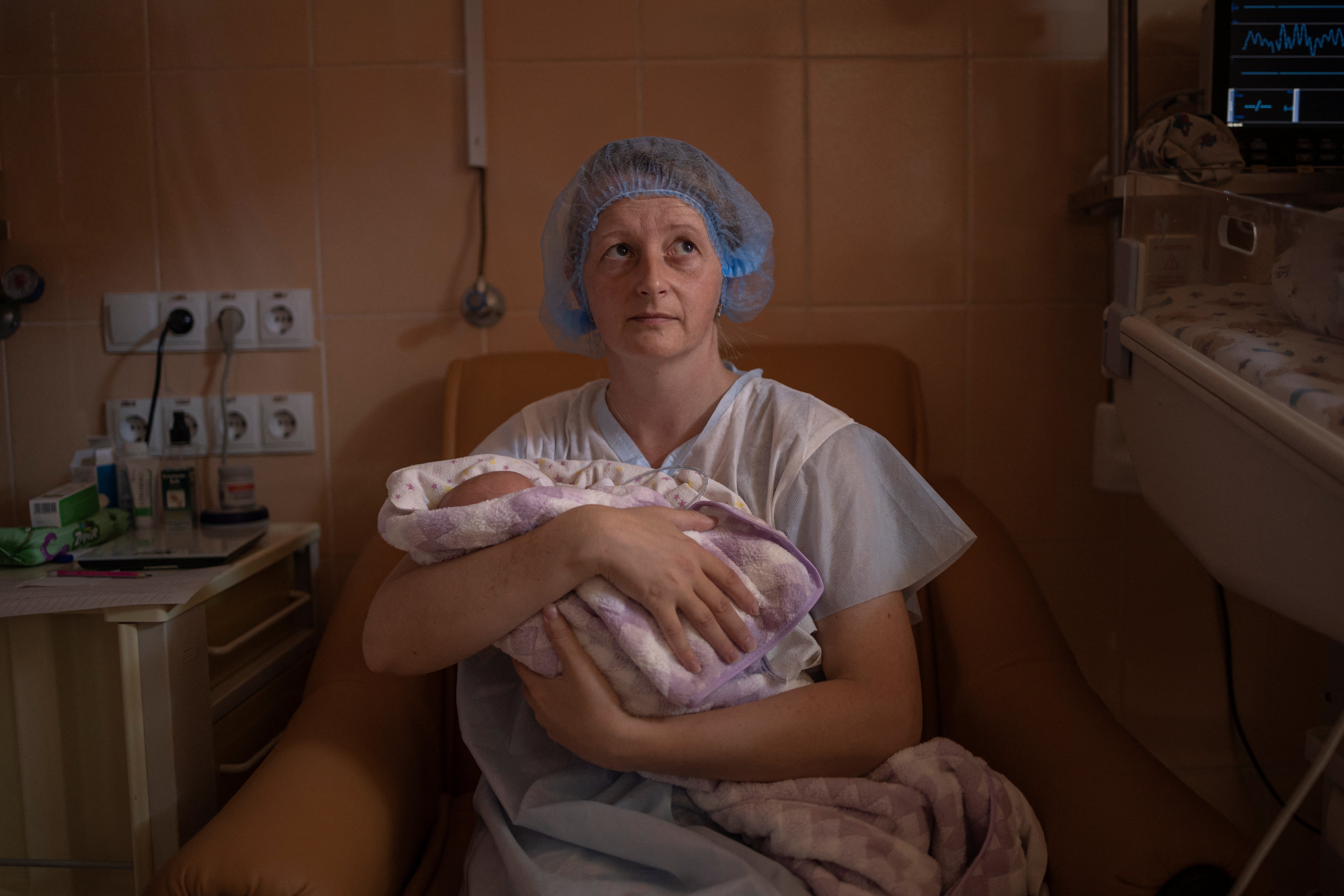
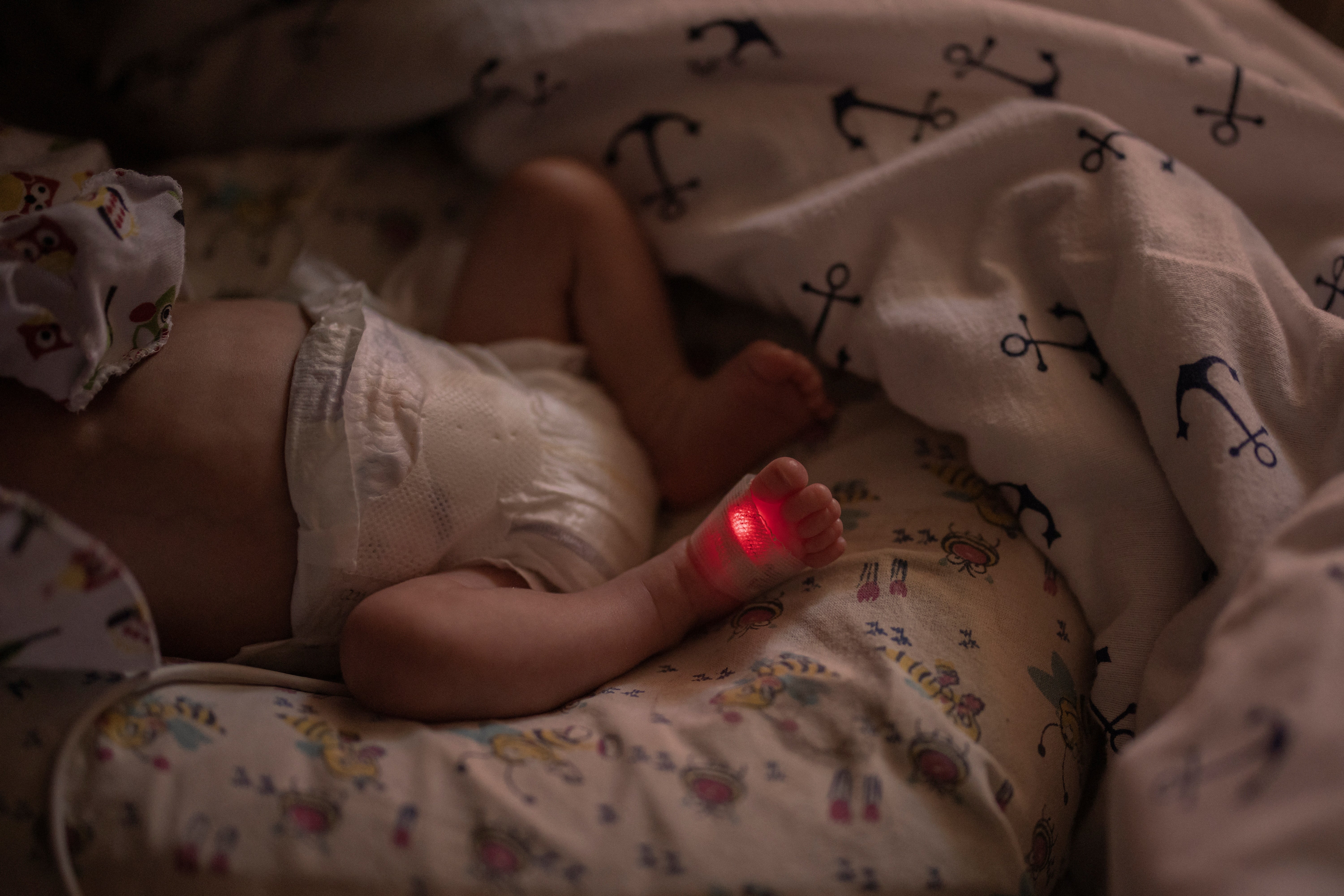
But thanks to an incubator and the care he received at the clinic, he is now doing well.
“We looked after him 24 hours a day,” Tsyganok said, wearing turquoise scrubs and Crocs.
Comforting her tiny son, Buravtsova said she had been uncertain how she would give birth, as her village, close to the frontline city of Kurakhove, was shelled.
“You could be forced to give birth in a cellar,” she said.
PREMATURE BABIES
In 2021, about 12% of just over 1,000 babies born at the centre were born before 37 weeks of pregnancy, according to data Tsyganok shared with Reuters. This rate – compared with a Ukraine-wide average of about 9%, according to the World Health Organisation – was typical for previous years in the centre, he said.
Since the invasion, 19 of the 115 babies born at the hospital were premature, a rate of about 16.5%, he said. The total number of births was low since many women had fled, he added.
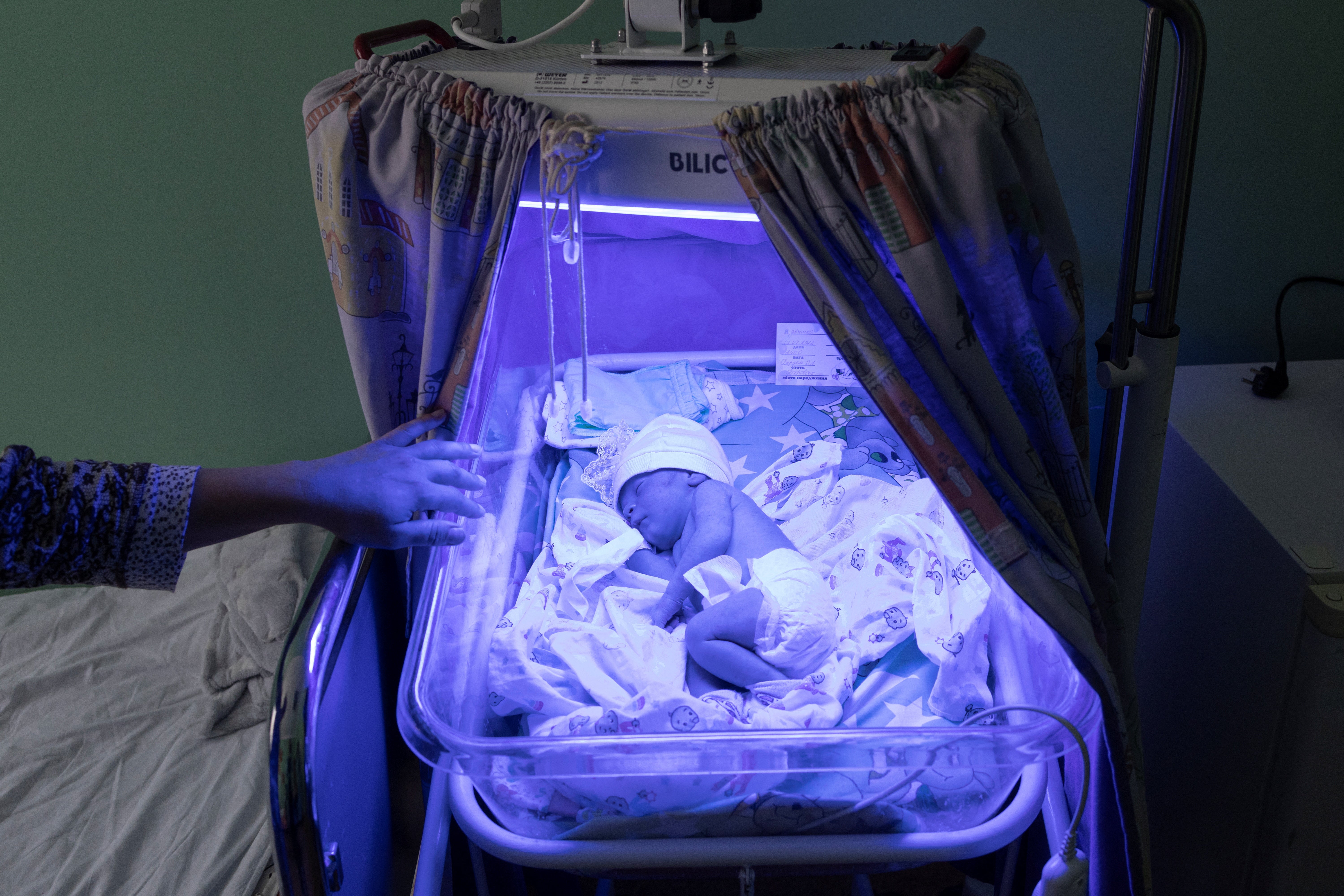
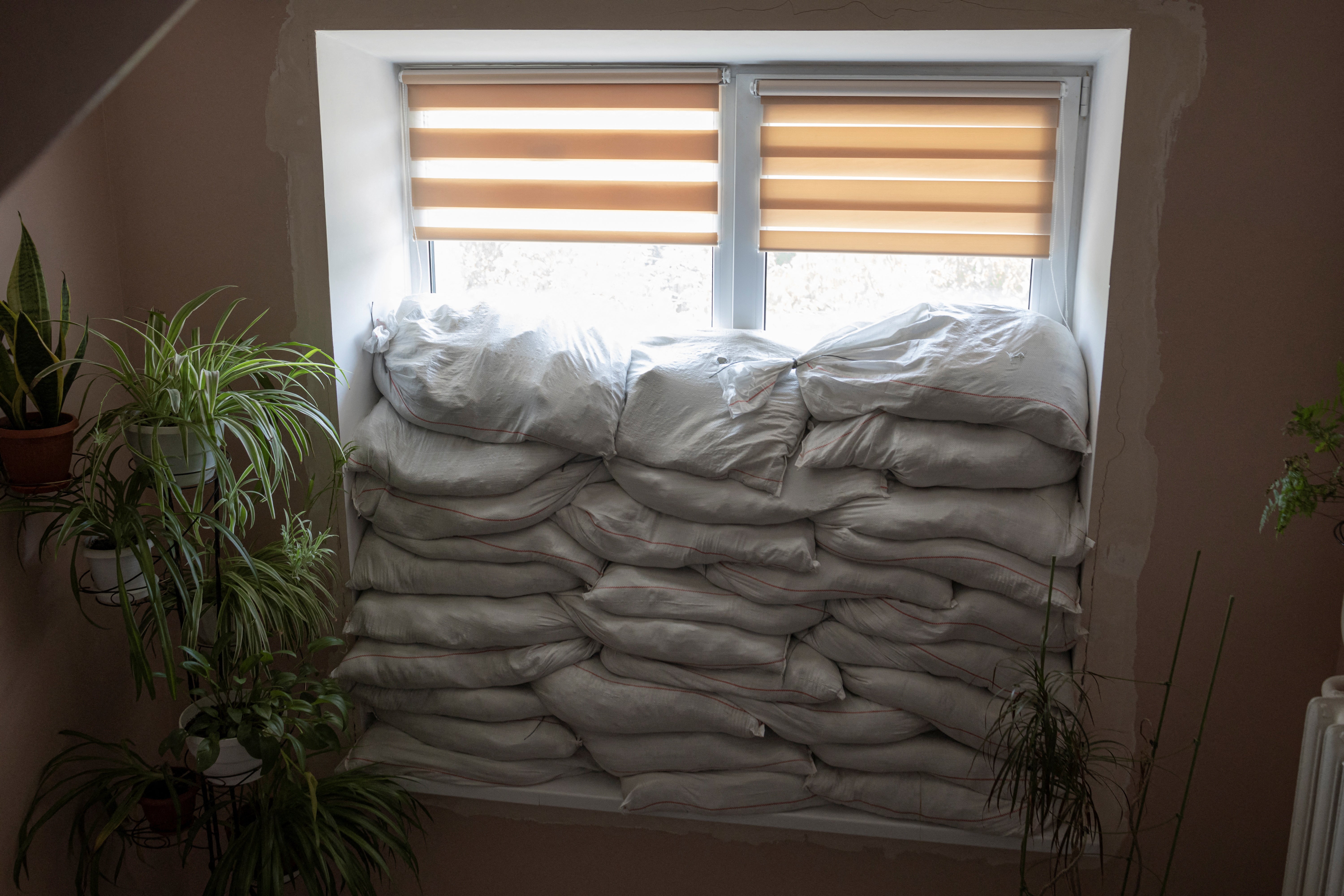
Tsyganok established the centre in 2015, the year after Russian proxies seized large swathes of the Donetsk and Luhansk regions, which make up the Donbas. Nearby Donetsk, the largest city in the region and home to a large maternity hospital, had fallen under the control of the self-proclaimed Donetsk People’s Republic in 2014.
Doctors at the new centre anecdotally observed that the smouldering conflict, which would kill more than 14,000 people between 2014 and 2022, was having an impact on pregnancies.
In 2017, an obstetrician-gynaecologist at the centre, Olesia Kushnarenko, set out to prove it, conducting research for a doctoral thesis on how wartime stress in expecting mothers affected the placenta.
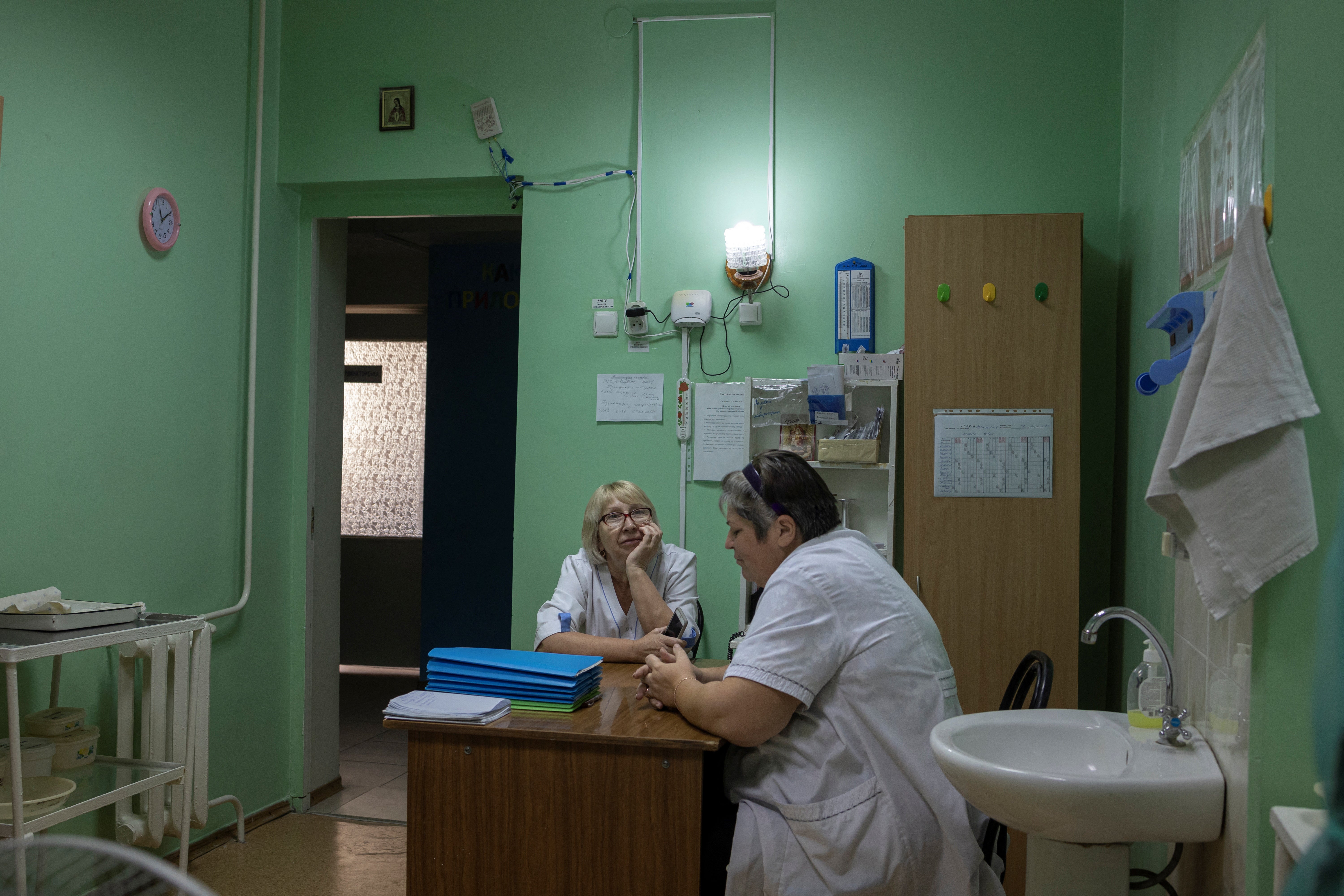
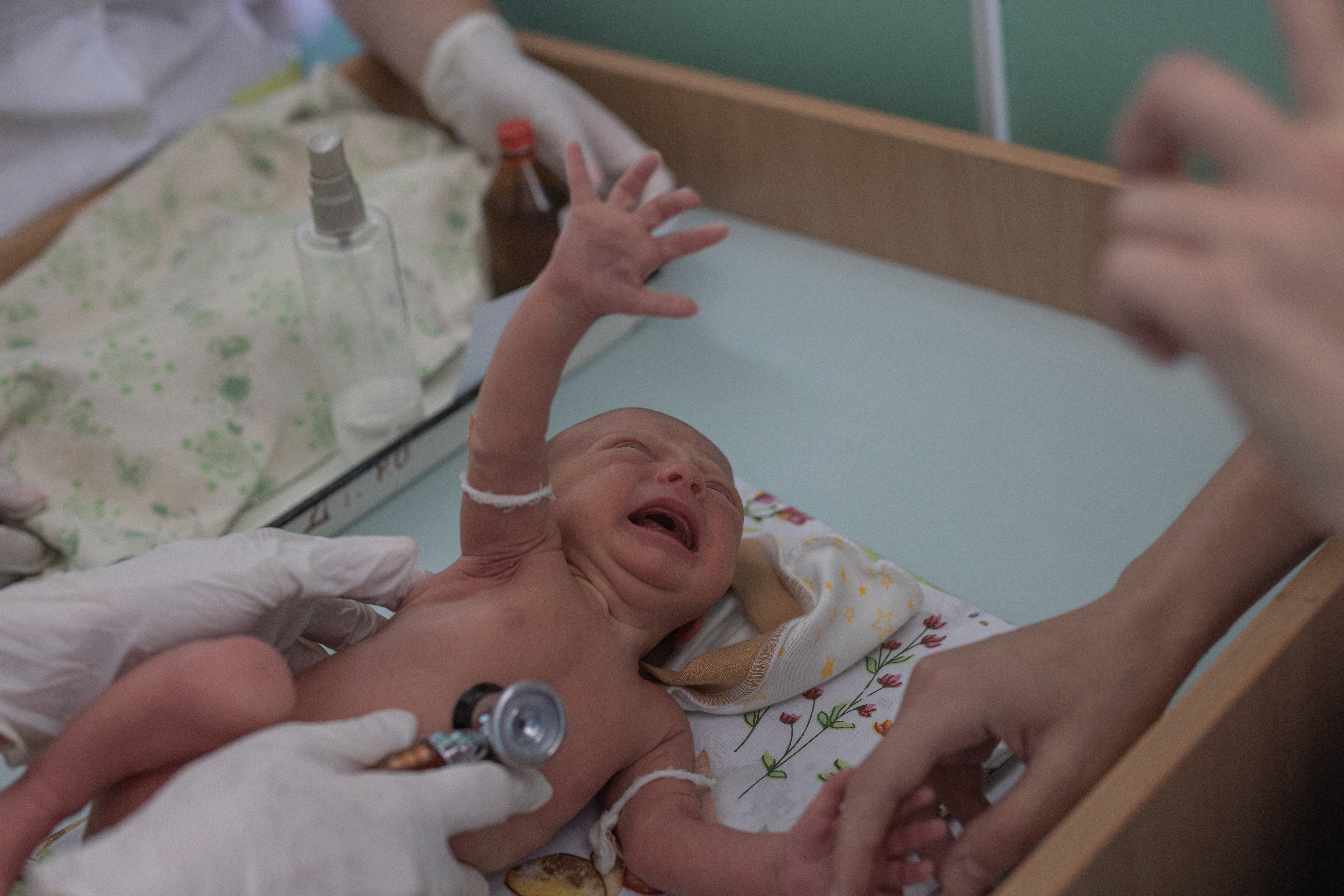
Her study followed 69 otherwise healthy women, who lived close to the fighting and were assessed to have high stress levels, through their pregnancies.
More than half of the women were found to have foetoplacental dysfunction – when oxygen and nutrients are not sufficiently transferred to the foetus – Kushnarenko said, a rate four times higher than that found among a control group of 38 women.
Kushnarenko also found higher rates of complications, including premature birth, among the babies born to mothers with high levels of stress.
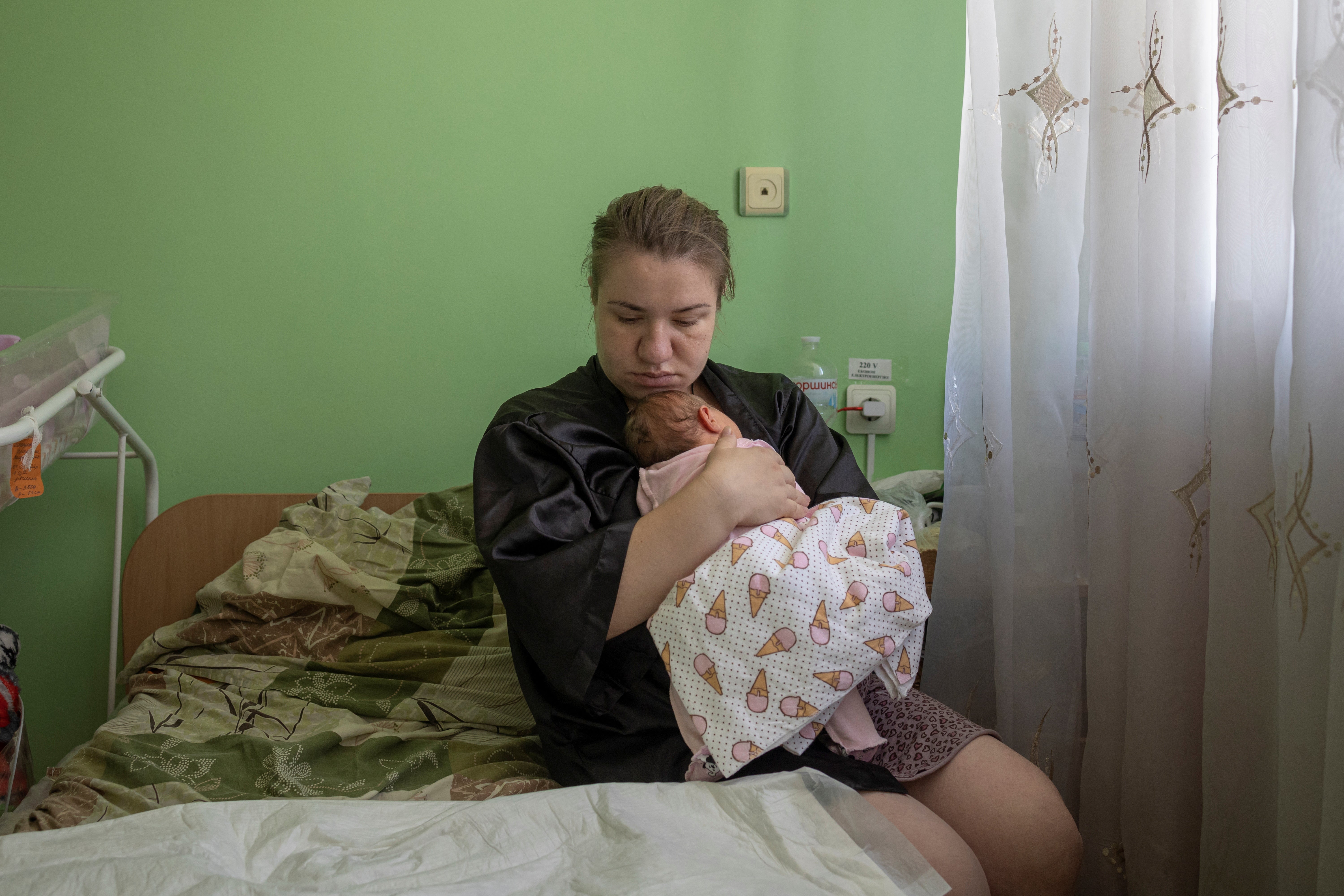
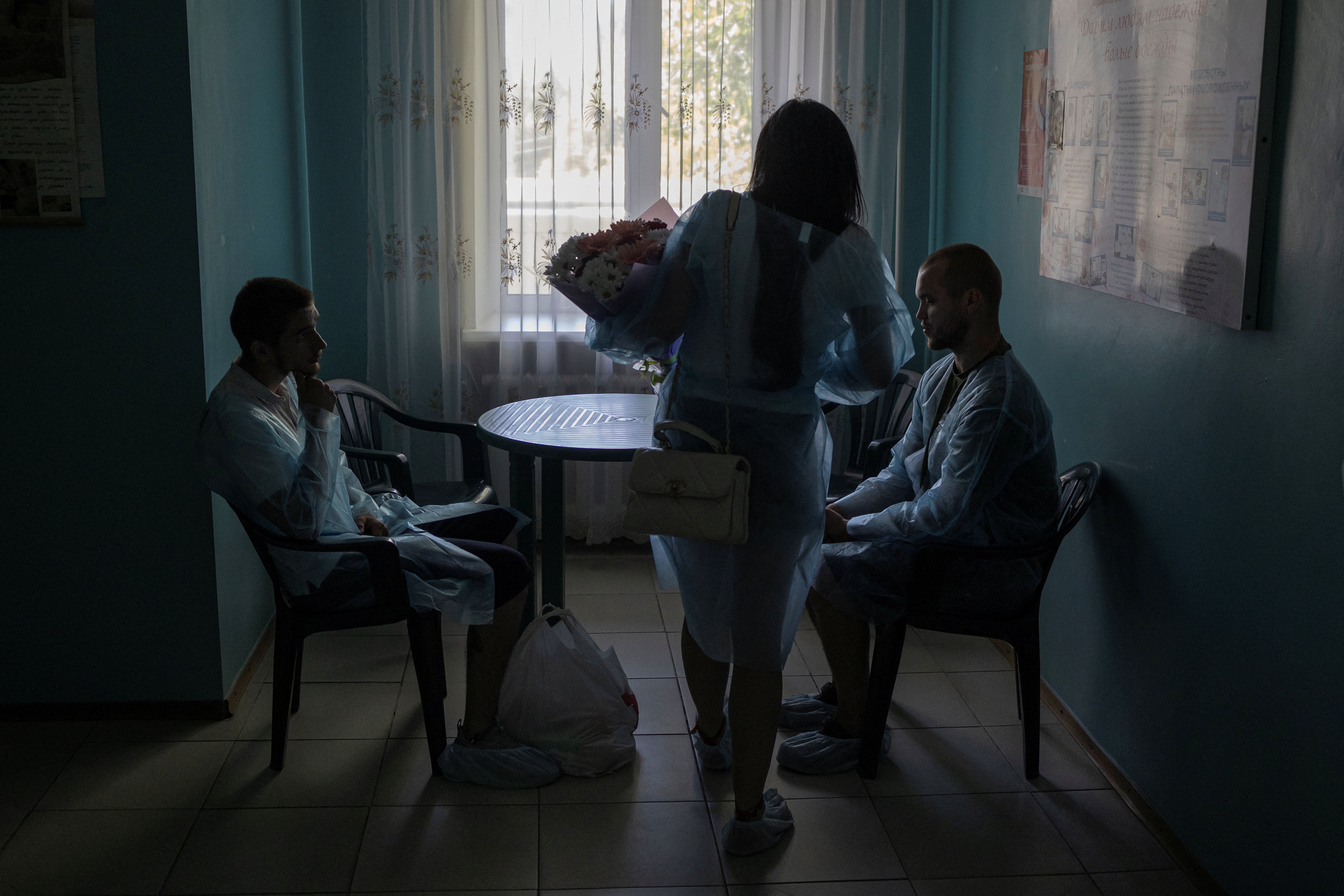
Now in Spain with her two children, she predicts the current conflict is having an even greater impact on pregnancies.
“This war is much hotter than before. It’s very dangerous all over Ukraine,” she said.
MARIUPOL HOSPITAL
Tsyganok says the sandbags in the windows will not save the clinic and its patients in the event of a direct hit, like the one at a hospital in Mariupol in March.
There, at least three people died when a Russian missile hit the hospital, sending expectant mothers, some with shrapnel wounds, fleeing in hospital gowns, according to Ukrainian authorities and press photos.
Russia’s defence ministry denied having bombed the hospital, and accused Ukraine of staging the incident.
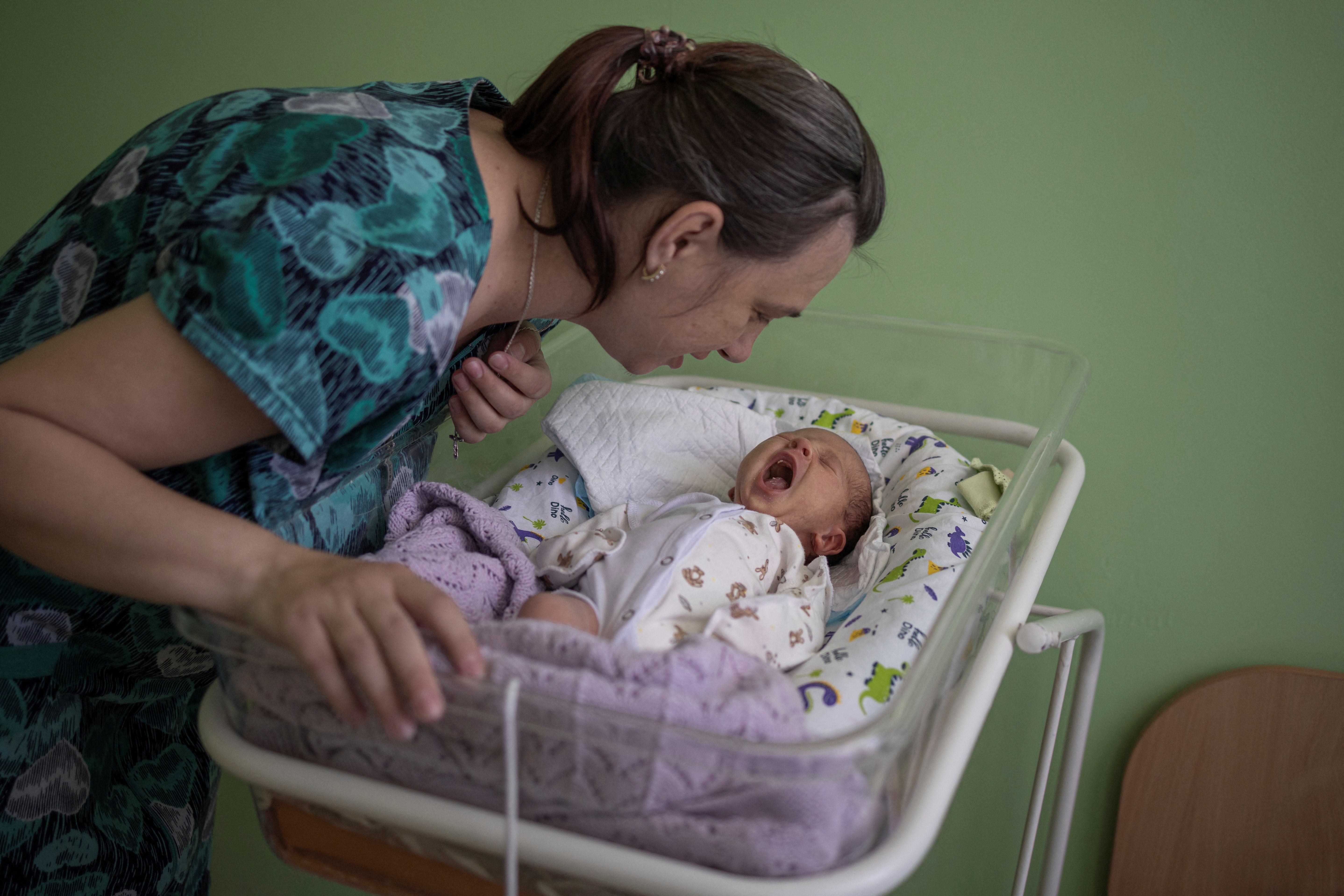
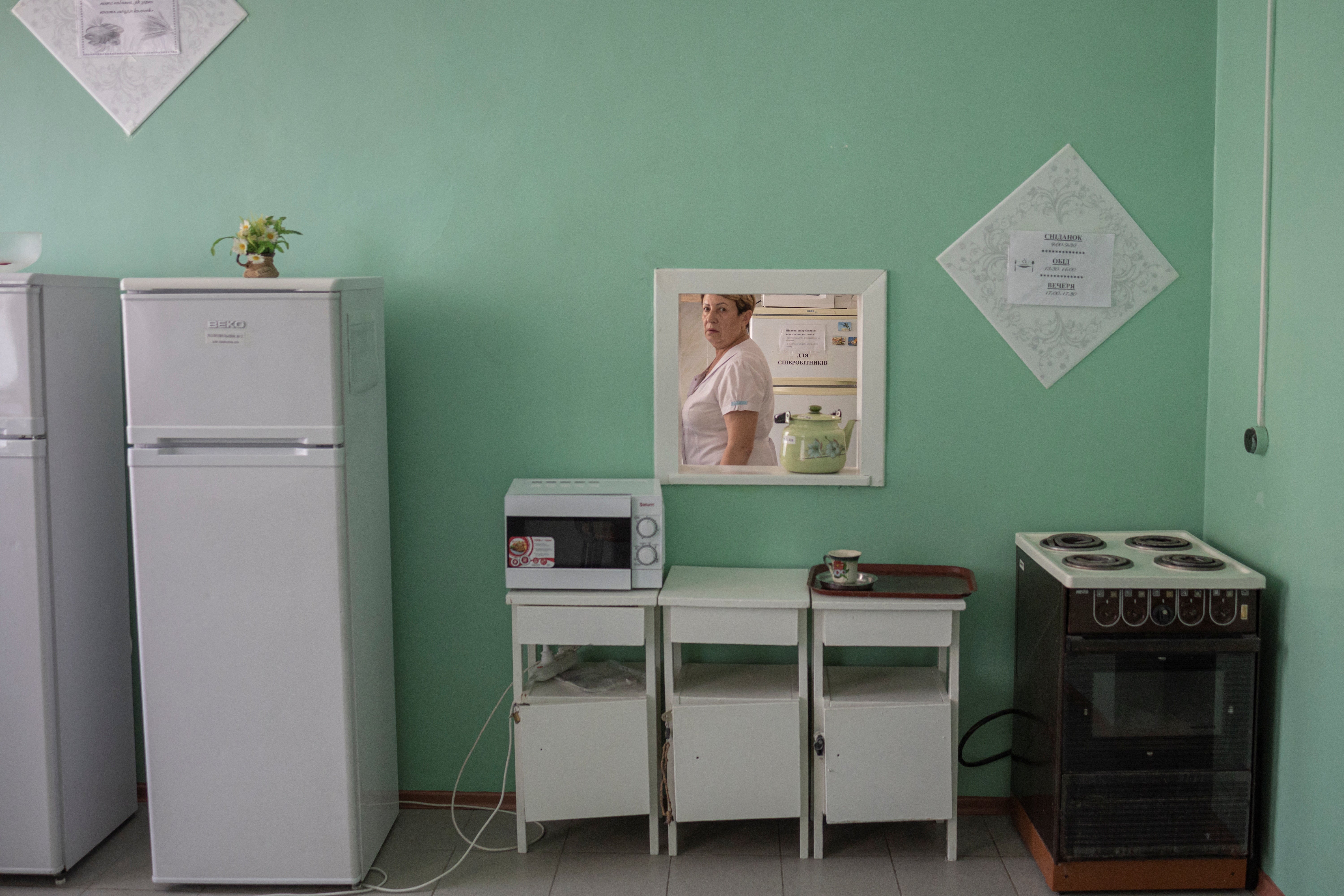
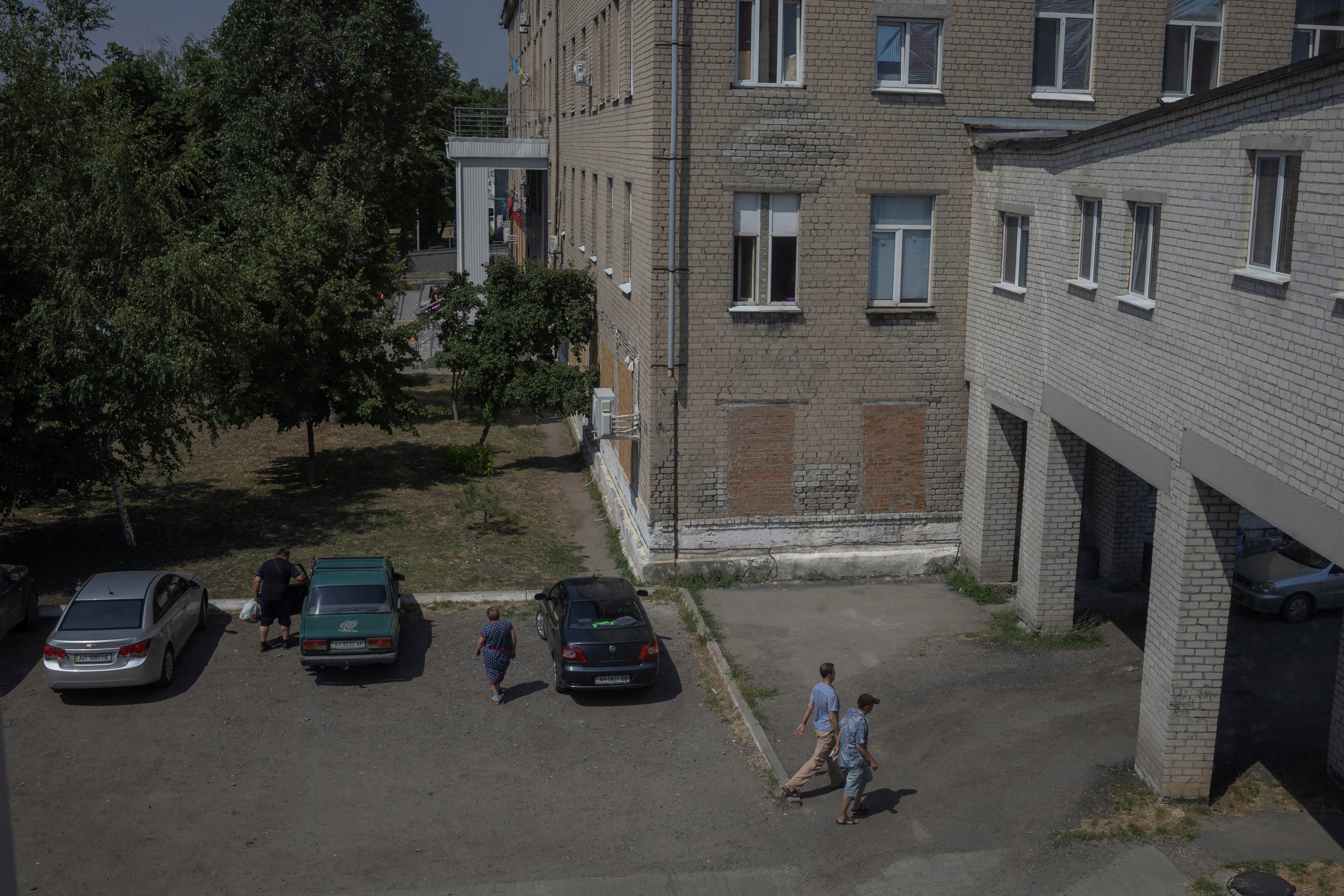
With the Mariupol centre gone and another in nearby Kramatorsk closed, the Pokrovsk facility now serves the remaining population of the Ukraine-controlled Donetsk region, about 340,000 people, according to the regional governor.
Among those attending the centre in Pokrovsk was Viktoriya Sokolovska, expecting a baby girl.
“The shooting is affecting my nerves,” she said late last month, while 36 weeks pregnant and trying her best to remain calm. She feared “all the nervousness will pass over to the baby”.
She has since given birth to a healthy daughter, Emilia.
Join our commenting forum
Join thought-provoking conversations, follow other Independent readers and see their replies
Comments